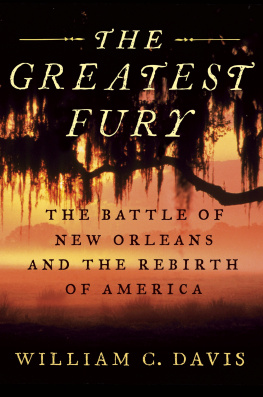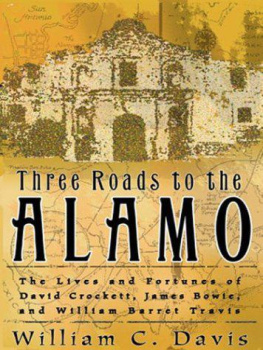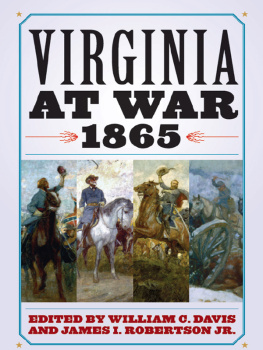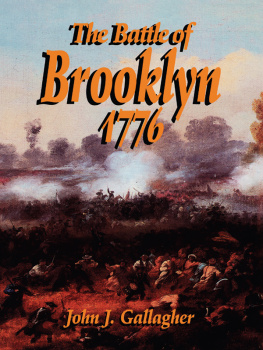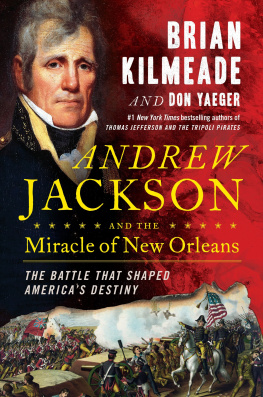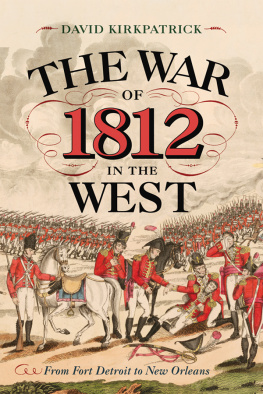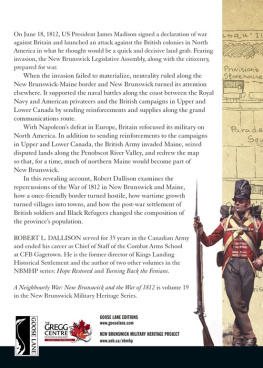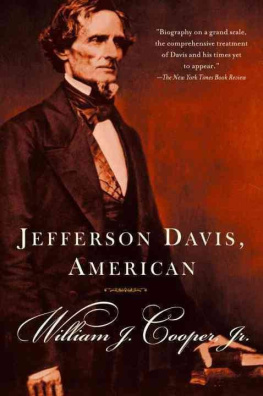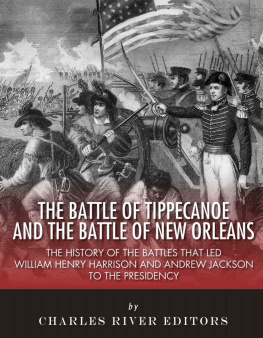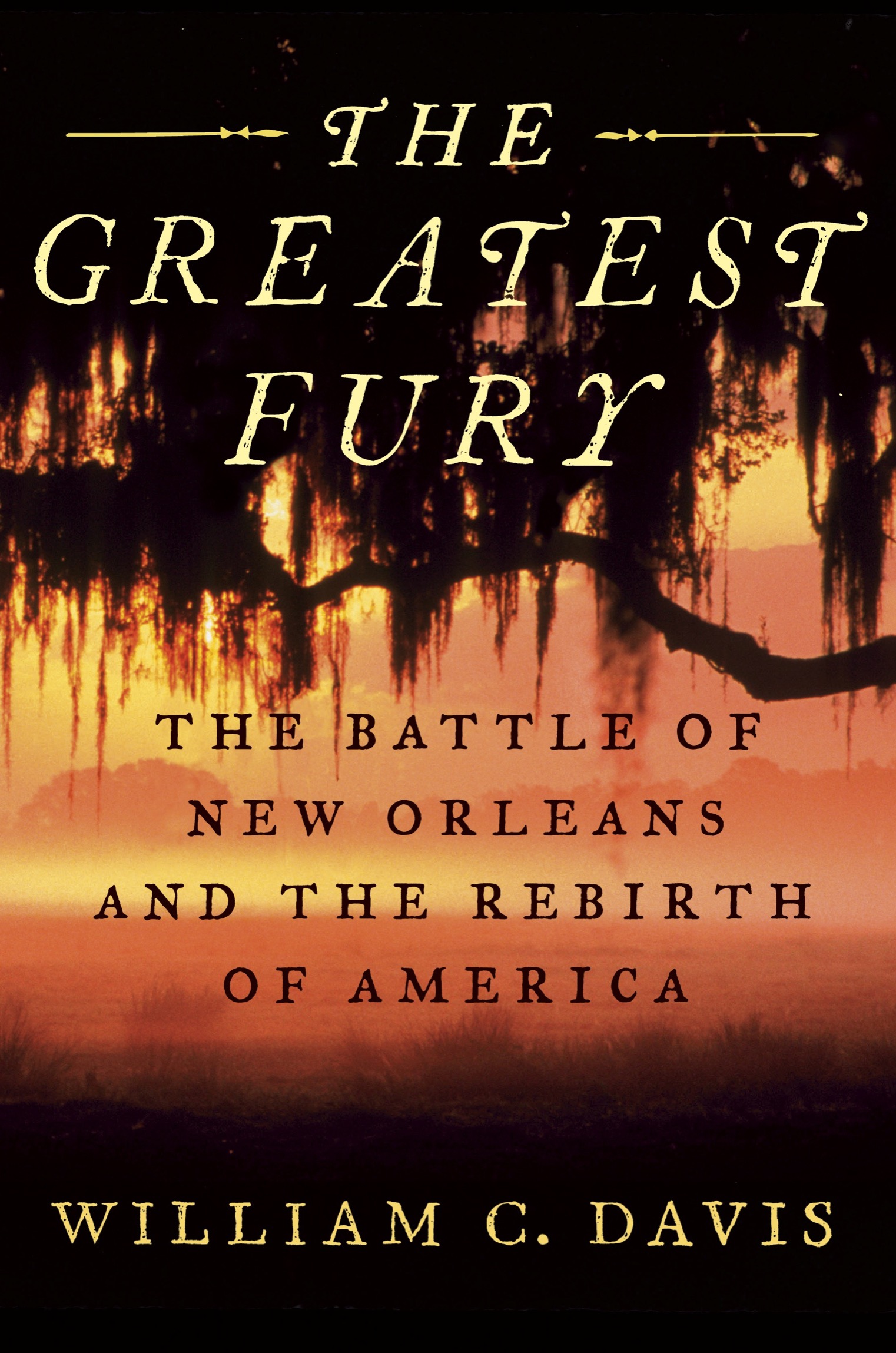
Also by William C. Davis
BRECKINRIDGE: STATESMAN, SOLDIER, SYMBOL
THE BATTLE OF NEW MARKET
DUEL BETWEEN THE FIRST IRONCLADS
BATTLE AT BULL RUN: A HISTORY OF THE FIRST MAJOR CAMPAIGN OF THE CIVIL WAR
THE ORPHAN BRIGADE: THE KENTUCKY CONFEDERATES WHO COULDNT GO HOME
THE IMAGE OF WAR, 18611865
TOUCHED BY FIRE: A PHOTOGRAPHIC PORTRAIT OF THE CIVIL WAR
JEFFERSON DAVIS: THE MAN AND HIS HOUR
A GOVERNMENT OF OUR OWN: THE MAKING OF THE CONFEDERACY
A WAY THROUGH THE WILDERNESS: THE NATCHEZ TRACE AND THE CIVILIZATION OF THE SOUTHERN FRONTIER
THE CAUSE LOST: MYTHS AND REALITIES OF THE CONFEDERACY
THREE ROADS TO THE ALAMO: THE LIVES AND FORTUNES OF DAVID CROCKETT, JAMES BOWIE, AND WILLIAM BARRET TRAVIS
LINCOLNS MEN: HOW PRESIDENT LINCOLN BECAME FATHER TO AN ARMY AND A NATION
AN HONORABLE DEFEAT: THE LAST DAYS OF THE CONFEDERATE GOVERNMENT
RHETT: THE TURBULENT LIFE AND TIMES OF A FIRE-EATER
THE UNION THAT SHAPED THE CONFEDERACY: ROBERT TOOMBS AND ALEXANDER H. STEPHENS
LOOK AWAY!: A HISTORY OF THE CONFEDERATE STATES OF AMERICA
A TASTE FOR WAR: THE CULINARY HISTORY OF THE BLUE AND THE GRAY
LONE STAR RISING: THE REVOLUTIONARY BIRTH OF THE TEXAS REPUBLIC
THE PIRATES LAFFITE: THE TREACHEROUS WORLD OF THE CORSAIRS OF THE GULF
ROGUE REPUBLIC: HOW WOULD-BE PATRIOTS WAGED THE SHORTEST REVOLUTION IN AMERICAN HISTORY
CRUCIBLE OF COMMAND: ULYSSES S. GRANT AND ROBERT E. LEETHE WAR THEY FOUGHT, THE PEACE THEY FORGED
INVENTING LORETA VELASQUEZ: CONFEDERATE SOLDIER IMPERSONATOR, MEDIA CELEBRITY, AND CON ARTIST
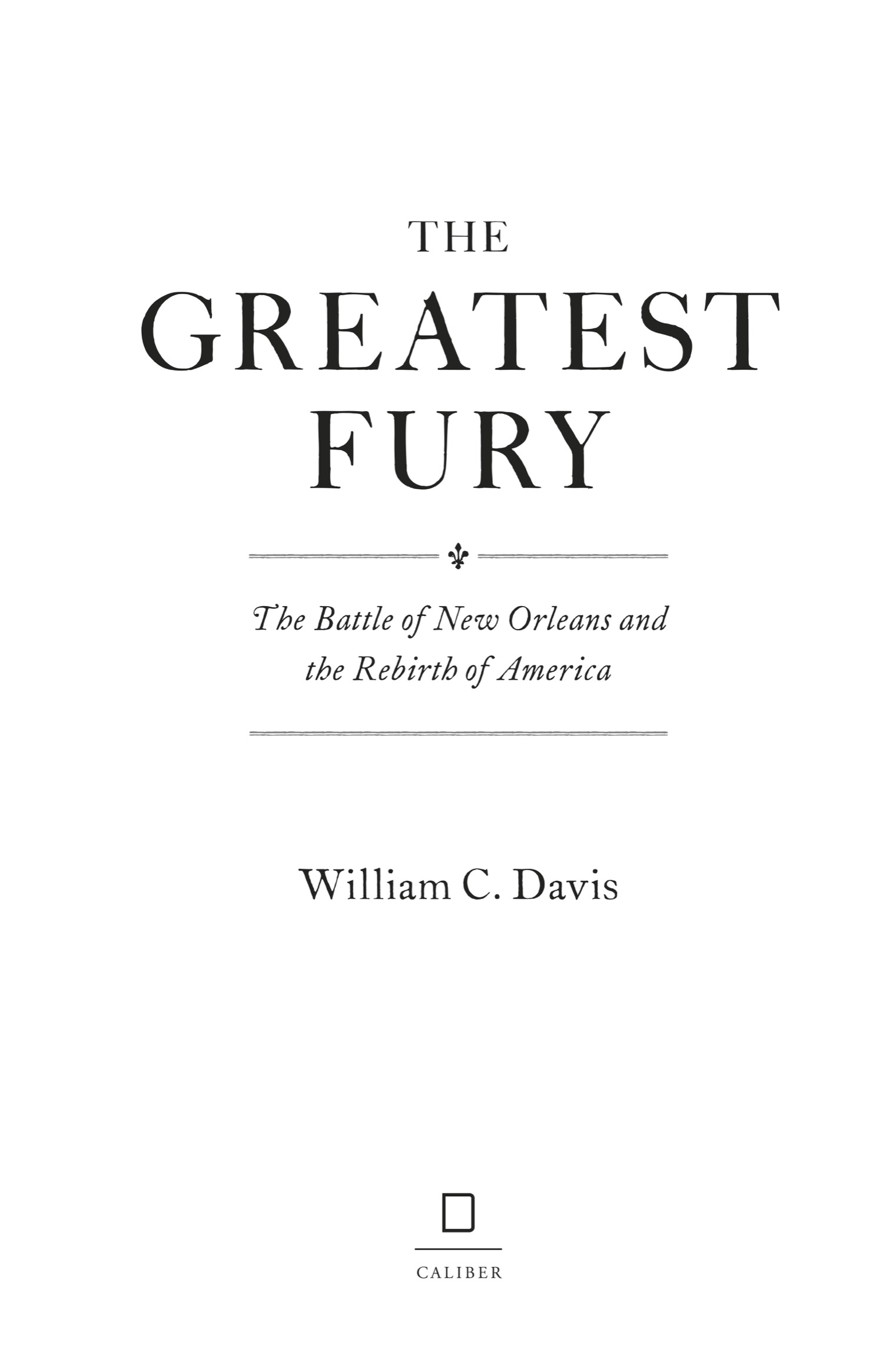

An imprint of Penguin Random House LLC
penguinrandomhouse.com

Copyright 2019 by William C. Davis
Maps copyright 2019 by National Park Service, Denver Service Center, Denver, CO
Penguin supports copyright. Copyright fuels creativity, encourages diverse voices, promotes free speech, and creates a vibrant culture. Thank you for buying an authorized edition of this book and for complying with copyright laws by not reproducing, scanning, or distributing any part of it in any form without permission. You are supporting writers and allowing Penguin to continue to publish books for every reader.
DUTTON CALIBER and the Caliber colophon are registered trademarks of Penguin Random House LLC.
LIBRARY OF CONGRESS CATALOGING-IN-PUBLICATION DATA
Names: Davis, William C., 1946 author.
Title: The greatest fury : the battle of New Orleans and the rebirth of America / William C. Davis.
Other titles: Battles for New Orleans and the rebirth of America
Description: First edition. | New York : Dutton Caliber, an imprint of Penguin Random House, [2019].
Identifiers: LCCN 2019021231 | ISBN 9780399585227 (hardcover) | ISBN 9780399585234 (ebook)
Subjects: LCSH: New Orleans, Battle of, New Orleans, La., 1815.
Classification: LCC E356.N5 D38 2019 | DDC 973.5/239dc23
LC record available at https://lccn.loc.gov/2019021231
While the author has made every effort to provide accurate telephone numbers, internet addresses, and other contact information at the time of publication, neither the publisher nor the author assumes any responsibility for errors or for changes that occur after publication. Further, the publisher does not have any control over and does not assume any responsibility for author or third-party websites or their content.
Version_2
For Chris, Dick, and Pam,
dear friends who left too soon.
May they go swiftly on their way.
And for my Bird,
Who is always with me.
CONTENTS
LIST OF MAPS
Battle of Lake Borgne, December 14, 1814
Regional Overview
Night Battle of December 23, 1814
Encounter of December 28, 1814
Artillery Engagement of January 1, 1815
Engagement of January 8, 1815
British Attack on the West Bank, January 8, 1815
Bombardment of Fort St. Philip, January 917, 1815
Preface
I T WAS A time of omens. The greatest comet in memory stretched a million miles across the night skies. The most powerful earthquakes in recorded history twisted the great Mississippi at will, swallowing communities, spitting up islands, and ringing church bells from New Orleans to Boston. With the heavens and the firmament in conflict with each other, Shawnee mystics foretold a war between the living and the dead.
In an atmosphere redolent of Revelations forecast of woe for the earth, it was fitting that men make war among themselves, even a small war for little reasons. In 1783, when Great Britain bid grudging farewell to thirteen colonies in North America, it still had an empire in the vastness of Canada, the islands of the West Indies, and elsewhere. Nine years later, when Britain began two decades of war with France, success depended on sustaining her thriving mercantile economy to fund the contest, and that meant holding supremacy on the seas, both of which threatened the Americans, whose burgeoning carrying trade depended heavily on France. Heavily committed in Europe, Britain neither needed nor wanted a conflict with the infant United States. Still, if Yankee trade or alliances threatened its efforts on the Continent, John Bull would accept a war with America better than lose a war with France.
The new nation across the Atlantic sailed an uncertain course through waters peppered with political shoals and reefs, trying to safeguard its flowering commerce and growing national pride. It flirted with neutrality, an alliance with France, and an implicit alliance with Britain, but sitting on the fence in a world at war only makes a better target. For three years the United States and France even fought a so-called naval Quasi-War that hard-pressed Napoleon soon enough halted. A brief peace in Europe in 1802 could not hold, and a year later they were fighting again, each striking at the other by acts to curtail its trade with America. That only aggravated other issues, chief among them the impressment policy of British naval captains who forcibly removed seamen from American vessels on the pretext that they were deserters from the Royal Navy. The number actually taken was small, but it was an emotional issue that outraged national pride exaggerated dramatically.
The United States responded to this and other provocations by barring all British imports, and then by a total embargo on all American foreign trade that fathered a thriving smuggling enterprise. In 1809, Congress allowed trade with all nations but Britain and France to resume, and two years later removed the ban on France. No matter how America tried to use its foreign trade as a weapon, it failed, harming Yankee merchants and exporters more than it did the European combatants.
Watching and condemning all of this was Thomas Jeffersons new Democratic Republican Party, and especially a wing of younger congressmen mostly from the southern and trans-Allegheny states called War Hawks. They took office in November 1811. Their inflammatory rhetoric reflected the comet still blazing overhead, even as their incessant hammering on commerce and national honor echoed stresses just weeks away from fracturing the earths crust. Backed by Jeffersons successor, James Madison, they ultimately persuaded Congress to take a more aggressive stand toward Britain. In June 1812, as the waning comet still fluttered faintly above continuing aftershocks of the great quakes, Madison and Congress declared war on Britain.

